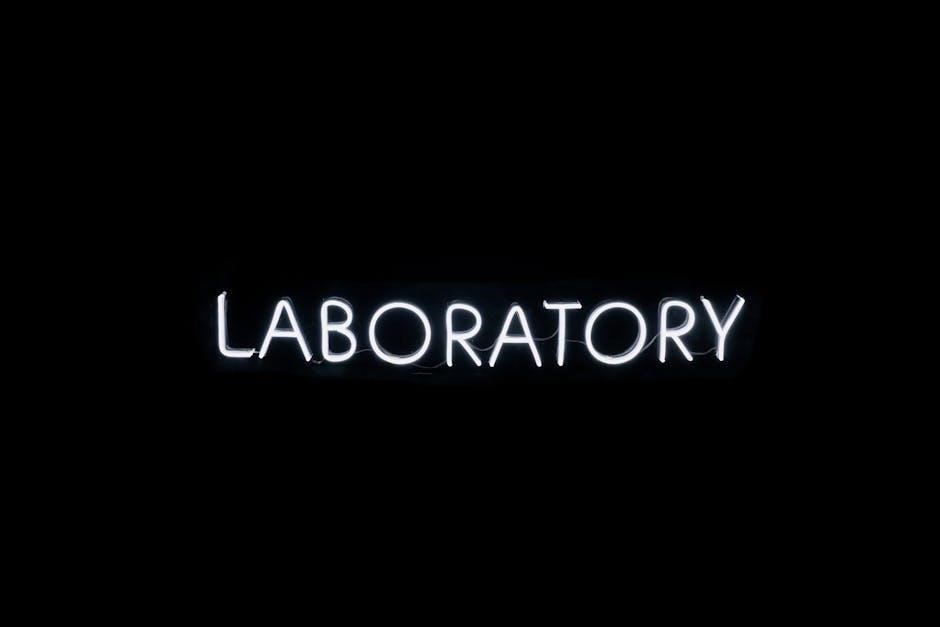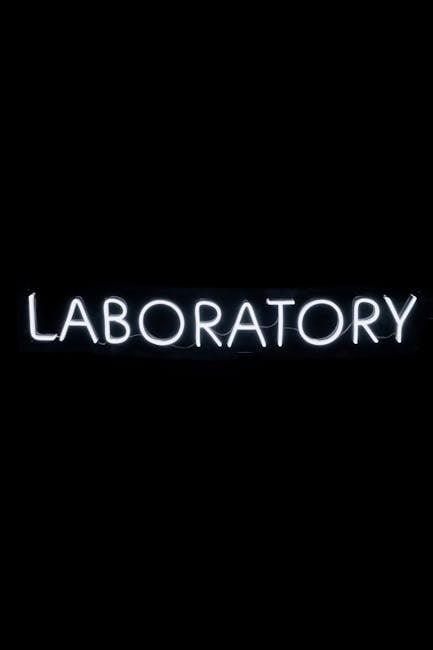Scientific Advertising, written by Claude C. Hopkins in 1923, revolutionized the field by introducing data-driven approaches and testing methodologies. This timeless guide emphasizes measurable results, offering insights into consumer psychology and effective ad strategies. Available as a free PDF, it remains a foundational resource for marketers seeking proven principles to enhance campaign success.
Overview of the Book
Claude C. Hopkins’ Scientific Advertising is a seminal work published in 1923, offering a data-driven approach to advertising. It emphasizes testing, measurable results, and understanding consumer behavior. Hopkins, a pioneer in the field, introduces principles like the use of coupons and traced returns to validate ad effectiveness. The book also explores the psychology behind purchasing decisions, highlighting the importance of clear, specific messaging. Its insights remain relevant, providing marketers with timeless strategies to optimize campaigns. Available as a free PDF, Scientific Advertising is a foundational resource for anyone seeking to elevate their advertising efforts through proven, scientific methods. It bridges the gap between art and science, making it indispensable for both traditional and modern marketers.
Importance of Data-Driven Advertising
Data-driven advertising is the cornerstone of Claude Hopkins’ philosophy in Scientific Advertising. Hopkins emphasizes the need to eliminate guesswork by relying on measurable results and customer feedback. By analyzing data, advertisers can identify which strategies yield the highest returns, ensuring efficiency and effectiveness. This approach allows for continuous improvement, as campaigns are refined based on real-world performance. Hopkins advocates for the use of coupons and tracked responses to gather precise insights, enabling advertisers to make informed decisions. In the digital age, this principle remains vital, as it ensures that marketing efforts are optimized for maximum impact. Through data-driven strategies, advertisers can achieve predictable outcomes, transforming advertising from a speculative endeavor into a precise science.
Evolution of Advertising as a Science
The evolution of advertising as a science marks a significant shift from intuitive guesswork to systematic, evidence-based strategies. Claude Hopkins played a pivotal role in this transformation by introducing methodologies that treated advertising as a measurable discipline. His work laid the groundwork for understanding consumer behavior through data and testing. Hopkins’ emphasis on tracked returns, coupons, and test campaigns established advertising as a field rooted in observable outcomes rather than creative whims. Over time, this approach has been refined, incorporating new technologies and tools to enhance accuracy and efficiency. Today, advertising is recognized as a science, with principles grounded in psychology, economics, and analytics. This evolution underscores the importance of precision and accountability, ensuring that campaigns deliver tangible results in an increasingly competitive marketplace.

Author Background
Claude C. Hopkins was a legendary advertising pioneer and author of Scientific Advertising, whose influential, innovative techniques revolutionized marketing strategies and established advertising as a science.
Claude C. Hopkins: Pioneer in Advertising
Claude C. Hopkins, a groundbreaking figure in advertising, transformed the industry by introducing scientific methods and measurable results. His work laid the foundation for modern marketing strategies, emphasizing data-driven approaches and consumer psychology. Hopkins was the first to use coupons and test marketing, proving advertising’s effectiveness through tangible outcomes. His principles, outlined in Scientific Advertising, remain timeless, guiding marketers to focus on sales and accountability. Hopkins’ innovative techniques, such as tracked returns and headline optimization, set new standards, making him a legendary pioneer whose ideas continue to influence advertising today.

His Contributions to Modern Marketing
Claude C. Hopkins made groundbreaking contributions to modern marketing by pioneering scientific advertising methods. He introduced the concept of tested advertising, using coupons and tracked returns to measure effectiveness. Hopkins emphasized data-driven decision-making, revolutionizing how marketers approached campaigns. His work laid the foundation for direct response marketing, focusing on clear, specific messaging that drove action. Hopkins also highlighted the importance of understanding consumer psychology, creating strategies that aligned with human behavior. His principles, such as headline optimization and split testing, remain integral to modern marketing practices. By transforming advertising into a measurable science, Hopkins empowered marketers to achieve predictable results. His ideas, shared in Scientific Advertising, continue to inspire and guide professionals, ensuring his legacy as a foundational figure in the industry.

Core Principles of Scientific Advertising
Scientific Advertising emphasizes tested, data-driven methods, clear messaging, and measurable outcomes, transforming advertising from an art into a predictable science through rigorous testing and consumer insights.

Establishing Advertising Laws
Claude Hopkins laid the foundation for advertising as a science by establishing universal laws based on rigorous testing and data analysis. He believed that advertising, once a gamble, could become predictable through proven principles. Hopkins emphasized the importance of understanding consumer behavior and crafting messages that resonate. By using techniques like coupons and traced returns, he demonstrated how to measure ad effectiveness. These laws, derived from decades of experimentation, provide a roadmap for creating impactful campaigns. Hopkins’ approach transformed advertising into a disciplined field, where decisions are guided by evidence rather than intuition. His work highlights the power of data in refining strategies and ensuring measurable outcomes, making Scientific Advertising a cornerstone of modern marketing philosophy.
Mail Order Advertising Insights
Claude Hopkins’ work in mail order advertising provided foundational insights into the scientific approach. He demonstrated how direct response methods could measure ad effectiveness through traced returns and coupons. By testing different campaigns, Hopkins identified what drove consumer action, emphasizing clarity and specificity in messaging. His principles, such as offering free samples and focusing on tangible benefits, remains relevant today. Hopkins’ mail order strategies revealed the importance of data-driven decisions, proving that advertising could be a predictable and measurable science rather than mere guesswork. These insights transformed how businesses approach marketing, offering a blueprint for crafting compelling, results-oriented campaigns.

Role of Headlines in Advertising
Claude Hopkins emphasized the critical role of headlines in capturing attention and driving engagement. He argued that headlines are the first point of contact with potential customers and must be clear, direct, and compelling. Hopkins believed that a headline should immediately communicate a benefit or promise, prompting the reader to continue reading. He advocated for simplicity and specificity, avoiding clever wordplay in favor of clarity. Hopkins also stressed the importance of testing different headlines to determine which resonates most with the target audience. By focusing on measurable results, he demonstrated that effective headlines could significantly enhance the success of an advertising campaign. His insights remain foundational for crafting impactful headlines that align with the principles of scientific advertising.
Psychology Behind Consumer Behavior
Claude Hopkins deeply explored the psychology driving consumer decisions, emphasizing the importance of understanding human motivations. He believed that advertising succeeds when it taps into fundamental desires, such as self-interest and the pursuit of benefits. Hopkins argued that consumers are rational decision-makers, weighing the value of offers and seeking tangible results. He highlighted the power of clear, direct messaging that speaks to these core motivations. Hopkins also stressed the role of trust-building through specific, verifiable claims rather than vague promises. His principles, rooted in psychological insights, remain essential for crafting ads that resonate with audiences. By focusing on human behavior and measurable outcomes, Hopkins transformed advertising into a science, ensuring campaigns deliver results rather than rely on guesswork or creative flair alone. His work continues to influence modern marketing strategies, proving timeless in its relevance.
Key Strategies in Scientific Advertising
Scientific Advertising emphasizes tested strategies like coupons, traced returns, and budget planning. These methods ensure measurable results, transforming advertising into a precise science rather than mere guesswork or creativity.

Use of Coupons and Traced Returns

Claude Hopkins introduced coupons and traced returns as key tools in Scientific Advertising. Coupons allowed advertisers to measure campaign effectiveness by tracking redemptions, providing tangible data on consumer response. This method ensured accountability, linking ad spend directly to sales. Traced returns involved tracking each ad’s performance, enabling precise attribution of results. By eliminating guesswork, these strategies transformed advertising into a scientific process. Hopkins emphasized that without measurable outcomes, advertising remains inefficient. His approach focused on maximizing ROI through tested, data-driven campaigns, setting a foundation for modern advertising metrics. This chapter highlights how such simple yet effective techniques laid the groundwork for today’s analytics-driven marketing landscape.
Importance of Test Campaigns
Claude Hopkins underscored the importance of test campaigns in Scientific Advertising, advocating for experimentation to determine ad effectiveness. By testing different approaches, advertisers can identify what resonates with their audience, optimizing campaigns for better results. Hopkins believed that testing allows marketers to refine their strategies, avoiding wasted resources on unproven methods. This scientific approach ensures that campaigns are data-driven, reducing risk and enhancing ROI. Test campaigns also enable advertisers to gather actionable insights, fostering continuous improvement. Hopkins emphasized that without testing, advertising remains speculative, making it inefficient. His philosophy of testing and iteration remains a cornerstone of modern advertising, ensuring that campaigns are grounded in proven results rather than intuition.
Strategic Budgeting and Media Planning
Strategic budgeting and media planning are cornerstone principles in Scientific Advertising, ensuring resources are allocated efficiently to maximize returns. Claude Hopkins emphasized the importance of aligning budgets with clear objectives, avoiding wasteful spending, and focusing on channels that deliver measurable results. Media planning, in this context, involves selecting the most effective platforms to reach the target audience, supported by data and testing. Hopkins advocated for a systematic approach, where every dollar spent is justified by its potential to drive sales. By prioritizing strategy over intuition, advertisers can optimize their campaigns, ensuring that media investments are both cost-effective and impactful. This scientific methodology transforms budgeting and planning into precise processes, enabling advertisers to achieve their goals with greater accuracy and efficiency.
Execution of Advertising Programs
Execution of advertising programs is a critical phase in Scientific Advertising, requiring meticulous planning and precise implementation. Claude Hopkins stressed the importance of adhering to established strategies, ensuring that campaigns unfold as intended. This involves careful coordination of all elements, from ad placement to messaging, to achieve consistent and impactful delivery. Hopkins also highlighted the role of continuous monitoring and adjustments, allowing advertisers to refine their approaches based on real-time feedback. By executing campaigns with discipline and attention to detail, marketers can maximize their effectiveness, ensuring that each effort aligns with overarching objectives. This systematic approach not only enhances the likelihood of success but also sets a foundation for scalable and sustainable advertising initiatives.

Relevance in the Digital Age
Claude Hopkins’ principles in Scientific Advertising remain highly relevant today, as data-driven strategies and measurable outcomes are cornerstone practices in modern digital marketing, ensuring timeless applicability and effectiveness.
Applying Scientific Principles to Online Marketing
Scientific Advertising’s principles seamlessly integrate into modern online marketing, emphasizing data-driven decision-making. Hopkins’ methods, such as using coupons and tracked returns, translate well into digital campaigns through tools like promo codes and affiliate links. The focus on measurable outcomes aligns with today’s analytics-driven environment, where ROI is critical. By applying these scientific approaches, marketers can optimize their strategies, ensuring that each campaign is based on proven principles rather than guesswork. This methodology not only enhances efficiency but also drives consistent, scalable results in the ever-evolving digital landscape.
Integration with Modern Advertising Tools
Scientific Advertising’s principles are effortlessly integrated with contemporary advertising tools, enhancing their effectiveness. Hopkins’ emphasis on data collection and analysis aligns perfectly with digital platforms like Google Analytics, allowing marketers to track consumer behavior and measure campaign success. Tools such as CRM systems and AI-driven marketing software further amplify these principles by enabling precise targeting and personalized messaging. Additionally, social media platforms and email marketing tools provide new avenues for applying Hopkins’ methods, such as A/B testing and segmented campaigns. By combining timeless scientific advertising principles with cutting-edge technology, marketers can create highly efficient and targeted campaigns that resonate with today’s audiences, ensuring maximum ROI and sustained growth in a competitive market. This integration not only modernizes traditional strategies but also ensures their relevance and effectiveness in the digital age.

Accessing the Book
Claude Hopkins’ Scientific Advertising is widely available as a free PDF download, accessible through platforms like Castlewood Studios, Perlego, and scientificadvertising.com, ensuring easy access for modern readers.
Free PDF Download Options
Claude Hopkins’ Scientific Advertising is readily available for free download in PDF format from various platforms. Websites like Castlewood Studios and Perlego offer direct links to the eBook, ensuring easy access. Additionally, platforms such as scientificadvertising.com and the Internet Archive provide downloadable versions, often with supplementary materials. These sources allow readers to explore Hopkins’ timeless principles without cost. The PDF format ensures compatibility across devices, making it simple to read on smartphones, tablets, or desktops. Many sites also offer additional resources, such as summaries or related articles, to enhance the learning experience. With just a few clicks, users can gain access to this foundational advertising text, which has remained relevant for nearly a century.
Where to Find the eBook
The Scientific Advertising eBook by Claude C. Hopkins is widely available across various platforms. Readers can access it through websites like scientificadvertising.com, which offers a direct PDF download. Additionally, platforms such as LitRes and Academia.edu provide the eBook in multiple formats, including PDF. Online libraries and repositories, such as the Internet Archive, also host the book for free. Many marketing and advertising websites feature links to download the PDF, making it easily accessible to anyone interested in learning Hopkins’ principles. Users can also search for “Scientific Advertising PDF” on popular search engines to find reliable sources. With its widespread availability, the eBook remains a convenient resource for marketers seeking timeless advertising wisdom.
Claude Hopkins’ Scientific Advertising remains a timeless guide, offering proven principles for effective marketing. Its insights into consumer behavior and data-driven strategies continue to inspire modern advertisers, ensuring lasting relevance.
Final Thoughts on Scientific Advertising
Claude Hopkins’ Scientific Advertising is a seminal work that transformed advertising into a precise science. By emphasizing data-driven strategies, measurable results, and consumer psychology, it provides timeless principles for marketers. The book’s focus on testing, such as through coupons and traced returns, ensures campaigns are optimized for success. Hopkins’ pioneering methods, like mail-order advertising insights and the importance of headlines, remain foundational in modern marketing. Available as a free PDF, this book is a must-read for anyone seeking to understand the science behind effective advertising. Its relevance endures, offering practical wisdom that transcends time and technological advancements in the field.
Encouragement to Apply the Principles
Applying the principles of Scientific Advertising is essential for marketers seeking tangible results. Claude Hopkins’ methodologies, such as testing campaigns and using coupons, provide a roadmap for success. By focusing on data-driven strategies and understanding consumer psychology, advertisers can create impactful campaigns that drive sales. The book’s insights, available as a free PDF, empower marketers to move beyond guesswork and adopt a scientific approach. Embracing these principles ensures efficiency and effectiveness, making Scientific Advertising a vital resource for anyone aiming to excel in the competitive world of advertising. Its timeless wisdom continues to guide marketers in achieving their goals through proven, evidence-based practices.


